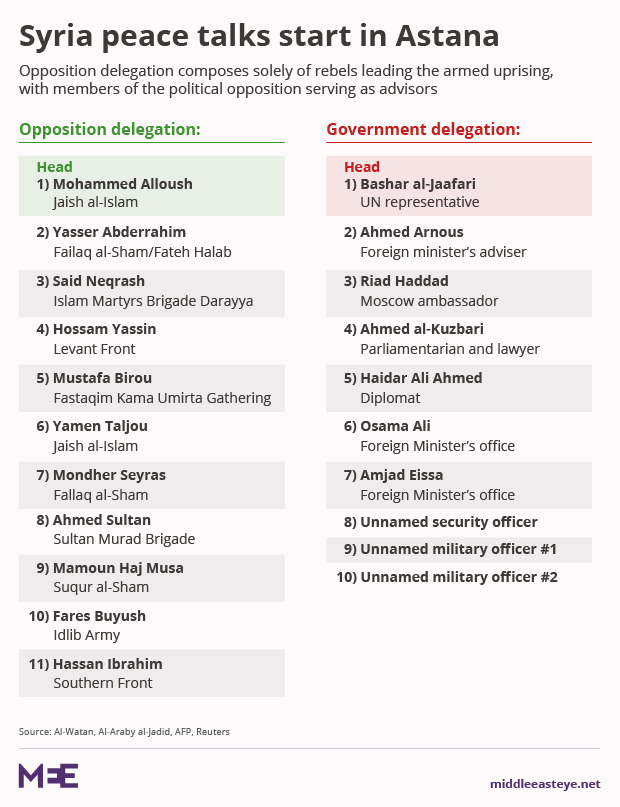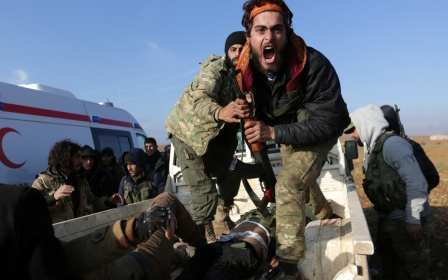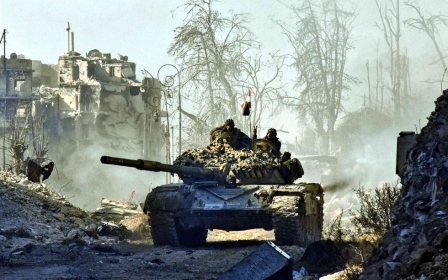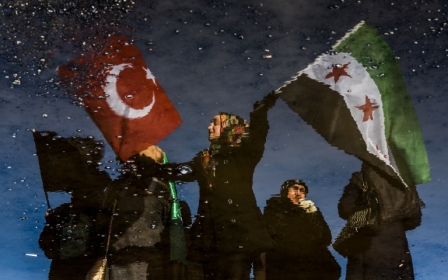Syria rebels promise to continue fighting if Astana talks fail
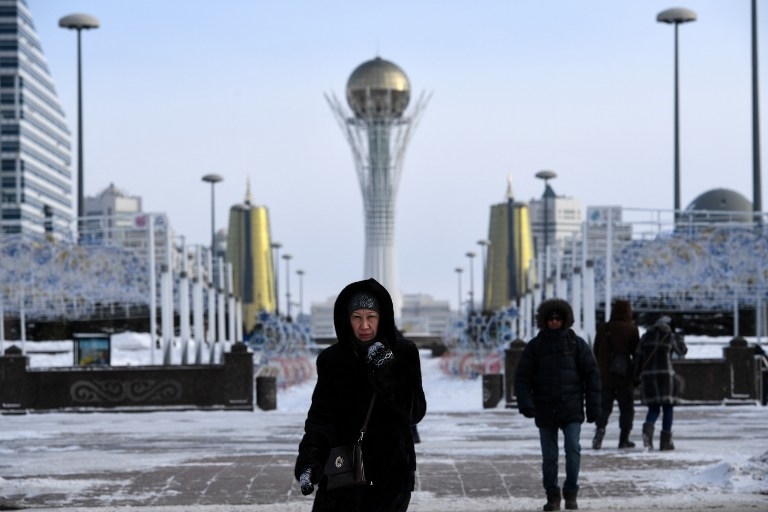
Syrian rebels have vowed to continue fighting if talks with the government in the Kazakh capital Astana fail, a rebel spokesman said Monday.
"If the negotiations succeed, then we are with the negotiations," rebel spokesman Osama Abu Zeid told AFP. "If they don't succeed, unfortunately we'll have no choice but to continue fighting."
The two sides both appeared at the opening ceremony of the talks in Kazakhstan's capital. But the rebels did not plan to meet the other side face to face, a source told Reuters.
The Syrian opposition delegation had said earlier it would only discuss ways to salvage a fragile Russian-Turkish ceasefire it sees as having been violated chiefly by Iranian-backed militias in Syria.
The Syrian government considers most of the rebel groups attending the conference to be foreign-backed "terrorists", but says it is ready to engage in talks with armed groups that surrender their arms and enter reconciliation deals.
Mainstream rebel groups under the banner of the Free Syrian Army (FSA) have rejected these terms, saying their goal is to end President Bashar al Assad's rule through a UN-backed political transition process.
"We will not enter into any political discussions and everything revolves over abiding by the ceasefire and the humanitarian dimension of easing the suffering of Syrians under siege and release of detainees and delivery of aid," Yahya al Aridi, a spokesman for the opposition delegation, told Reuters.
"The Syrian regime has an interest in diverting attention from these issues. If the Syrian regime thinks our presence in Astana is a surrender by us, this is a delusion," he added.
"There are complications when you are going to face those who entered your country and continue to kill you, and a regime that has not abided by a ceasefire and continues with its policy of destruction and killing its people," he said.
The Syrian government has long denied using its aerial superiority to bomb civilians in rebel-held areas in a conflict that has killed hundreds of thousands.
UN investigators have also accused both government and rebels of committing war crimes during the conflict.
The delegation, which faced enormous pressure from regional backer Turkey to attend the talks branded a sellout by other rebel groups, was meeting round the clock to decide whether to attend the opening session, where it would be in the same room as Syrian government representatives.
The Syria government's UN representative Bashar Ja'afari condemned the tone of the Syrian opposition representative, Mohammed Alloush, as "insolent" and "provocative" earlier on Monday.
Astana meeting
The talks in Astana between Syria's warring sides, with Russia, Turkey and Iran sponsors of the talks, are the first time the opposition and representatives of Syrian President Assad have come together since UN-brokered negotiations in Geneva were suspended early last year.
Organisers played down expectations of a breakthrough in the Kazakh capital. There are no senior government figures among the delegations and Kazakhstan's foreign ministry said on Sunday it expected the meetings to be over by midday on Tuesday.
Adding to the difficulties, Russia and Turkey remain at odds over fundamental issues such as whether Assad should stay in power or step down for the sake of reconciliation.
Jaafari told reporters on the plane to Astana on Sunday that the agenda would focus on strengthening a ceasefire that has been largely in force since last month.
Jaafari played down Turkey's role as a party to the talks, saying they were between Syrians only.
"Turkey is violating Syrian sovereignty so there is no Syrian-Turkish dialogue," he said, a reference to Turkish support for anti-Assad armed groups in the north of Syria.
On Monday, Turkish Deputy Prime Minister Numan Kurtulmus warned that no-one should expect a quick resolution.
"There are parties that have been at war with each other for six years around the table at Astana. A solution in one or two days should not be expected," Kurtulmus said at a news conference in Ankara after a Turkish cabinet meeting.
Hard going
Diplomats from Russia, Turkey and Iran gathered separately on Sunday at a hotel in Astana to discuss the coming negotiations.
Alexander Musienko, an adviser to Russia's ambassador to Kazakhstan, told reporters that preparatory talks had been "hard going ... But one needs to give time to our negotiators to let them complete their mission.
"Undoubtedly one cannot resolve issues like this in just one day," he said.
Some observers said the meetings in Astana could help jumpstart the Geneva negotiations led by the United Nations. The UN Special Envoy for Syria, Staffan de Mistura, is attending the meetings.
"The Astana process is a little bit of an unknown quantity, not quite sure what the Russians in particular have got in mind," said a senior UN Security Council diplomat, speaking on condition of anonymity.
"But provided that it helps get a genuine UN-led process up and running again ... then it can play a constructive role."
The talks notably exclude the West, although Moscow extended a last-minute invitation to the new United States administration last week.
Moscow and Ankara back opposing sides in the conflict, with Turkey giving aid to anti-Assad rebels and Russia's military having turned the tide of the conflict in favour of Assad.
But Turkey and Russia - each for their own reasons - both want to disentangle themselves from the fighting. That has pushed them into an ad hoc alliance that some people believe represents the best chance for progress towards a peace deal, especially with Washington distracted by domestic issues.
The opposition arrives in Astana aware that the fall of their former urban stronghold, Aleppo, has shifted the momentum in the fighting in favour of Assad.
New MEE newsletter: Jerusalem Dispatch
Sign up to get the latest insights and analysis on Israel-Palestine, alongside Turkey Unpacked and other MEE newsletters
Middle East Eye delivers independent and unrivalled coverage and analysis of the Middle East, North Africa and beyond. To learn more about republishing this content and the associated fees, please fill out this form. More about MEE can be found here.


